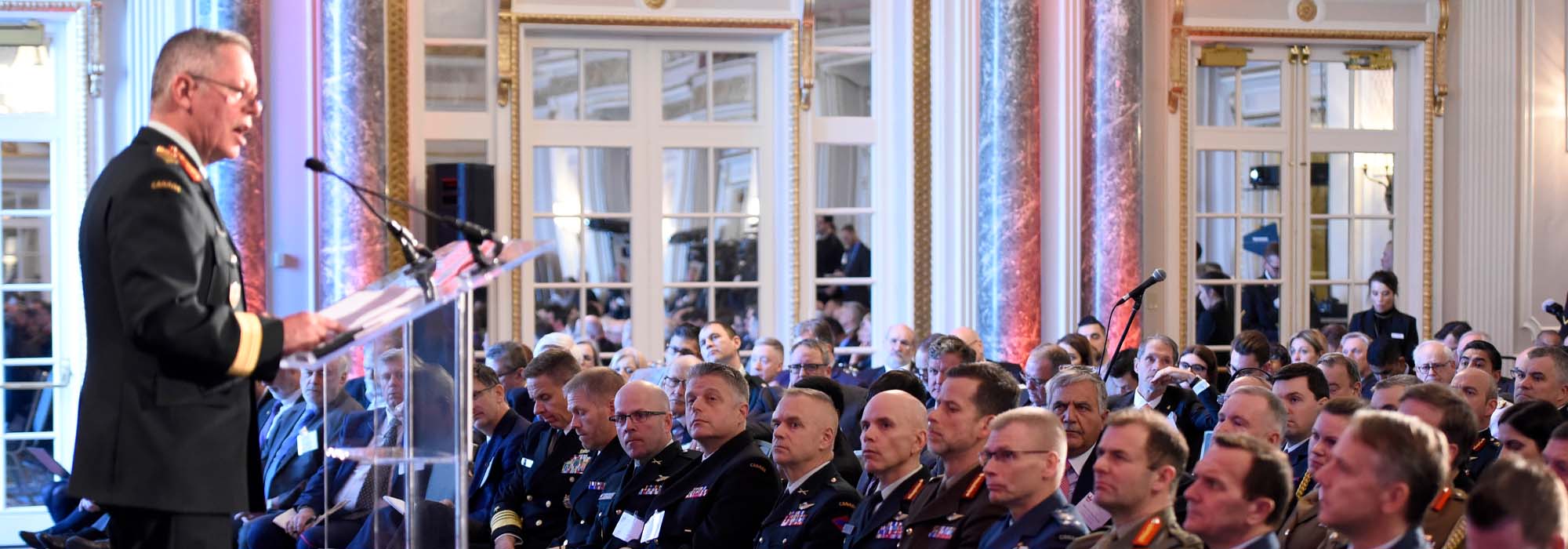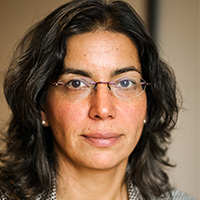
Emergency meetings into sexual misconduct in the Canadian military have taken a surprising turn now that yet another allegation involving a high-ranking officer was revealed on Wednesday. The House of Commons Standing Committee on National Defence was investigating complaints against former Chief of the Defence Staff General Jonathan Vance when current Chief of the Defence Staff Admiral Art McDonald stepped aside to allow investigations into allegations that he himself is involved in misconduct.
More than five years ago, an external review into sexual misconduct in the military was conducted and yet sexual misconduct remains a serious and widespread problem. Now’s the time for Canadian parliamentarians to show leadership to protect military men and women.
Neither Conservatives nor Liberals are looking good in this story. Vance was appointed under the Harper Conservative government, while McDonald is a Liberal appointee. This story, however, shouldn’t focus on party politics. To support the women and men in the Canadian Armed Forces (CAF), attention should be focused instead on the long-standing and deep-seated problem of the military’s workplace culture – a problem that has gone unnamed and unchecked for decades.
This military story is rapidly spiraling downward as all political parties, NDP and Bloc included, are failing Canadians. Defence Committee members from all political parties need to take a step back and focus on the real issue at hand – what is in the best interest of past, present and future members of the military.
All political parties should share an interest in wanting to ensure the health and well-being of military members through a safe workplace. The committee needs to use its powers to help install the two missing levers needed to address sexual misconduct in the Forces: a strategy to bring about military culture change and an oversight mechanism to ensure the required changes actually occur.
The Canadian military needs a comprehensive strategy that acknowledges its institutional role and responsibility in preventing sexual misconduct along with all other forms of discrimination and violence in the workplace. Given the ongoing systemic resistance to military culture change, long-term independent external oversight is required to ensure the health and wellbeing of all women and men serving in the Canadian military.
It has been over five years since then Chief of the Defence Staff General Tom Lawson requested an external review after CAF members shared with the media their experiences of the military’s mishandling of sexual assault investigations. In 2015, in response to Justice Marie Deschamps’ external review the military launched Operation Honour, which aimed to eliminate sexual misconduct.
In retrospect, Operation Honour had two fundamental flaws. It never asked why sexual misconduct happens or how institutions change. Operation Honour never made the link between sexual misconduct and military culture – specifically the role of gender and masculinity in military culture. Nor did Operation Honour have built-in mechanisms for accountability, monitoring, or oversight.
Fundamental military culture change is the only way to get at the root causes that create an environment in which sexual misconduct occurs and goes unreported.
The military is a workplace (not unlike the RCMP) that is designed around an unstated but institutionally assumed white, heterosexual male norm. This norm was perpetuated by a long history of legally sanctioned sex and gender discrimination. The legal discriminations have been removed but the culture hasn’t changed. Those labelled as “other” for not fitting into the preconceived “norm” of what a Canadian soldier should be are too often still treated as second-class soldiers.
It is the ongoing perpetuation of the white, heterosexual male soldier norm that enables gender-based violence, including sexual harassment and sexual assault, as well as racism and homophobia to persist in the military workplace.
The military is a federally regulated workplace that makes exceptional demands on its workers but has weak workers’ rights. The military gives priority to operational readiness, demanding from its workers unlimited liability, universality of service, total dedication to work, uniformity, hierarchy, obedience, as well as loyalty to the group and mission before self. And yet there is no union to represent the voice of the women and men in uniform, as the RCMP now has. There is also no independent workplace oversight body to defend military members with work-related concerns.
These exceptional demands of military work have been used in the past to justify the military as a – if not the – quintessentially male workplace. It is therefore astounding that Operation Honour lacks any reference to gender, masculinity, or men. It will require a foundational shift in the military’s own culture to ever address sexual misconduct in a meaningful way.
However, the military showed reluctance, if not outright resistance, to following the Deschamps report recommendations. Operation Honour went no deeper then to assume change was possible by simply ordering military members to stop engaging in sexual misconduct. Rather than setting up an independent external accountability centre, CAF chose to self-monitor. There is no evidence to date that the military can self-reform.
This leaves the Defence committee with a moment in time to pivot. The Defence Committee could now do something truly meaningful—which means doing something different. It could acknowledge the lessons learned from Operation Honour. It could name and address the root causes of a complex dysfunctional workplace culture. It could shy away from the easy path that focuses on symptoms and a few high-profile cases of alleged sexual misconduct. The easy path leads nowhere but to the further perpetuation of the status quo.
Now is the time for political leaders, of all parties, to step up and show leadership in the interest of the health and well-being of military women and men. It is time for parliamentarians to listen to the unbiased experts, ask the tough questions about military culture change and create systemic accountability through external oversight.
Canadians are counting on it and military members deserve nothing less.
Photo: Senior members of the Canadian Forces sitting in the front row listen as Chief of the Defence Staff Jonathan Vance delivers remarks at the Ottawa Conference on Security and Defence in Ottawa, on March 4, 2020. Vance, now retired, is the subject of external and internal probes into allegations of misconduct. THE CANADIAN PRESS/Justin Tang










